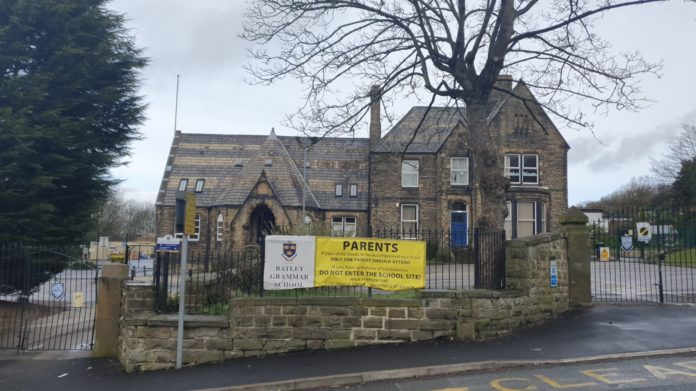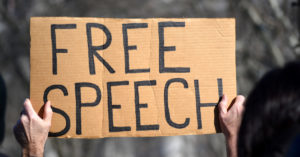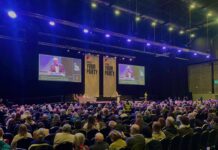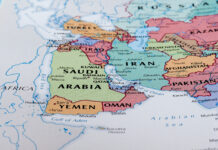
Alim Hasan Islam from Prevent Watch says the hypocrisy of the government, the proponents of Prevent and free speech warriors has yet again been exposed by the controversy at Batley Grammar School.
The last week has been dominated by concerns being raised by parents in Batley over a teacher showing Muslim school children a caricature of the Prophet Muhammad (pbuh) that was notoriously produced by Charlie Hebdo.
According to a number of reports, the children were left in a distressed state and were afraid to speak up about the incident in case they were reported to Prevent.
However, shortly afterwards, and true to form, the British media and politicians spun these legitimate concerns into a threat to British values. But who has the right to determine what British values are and who can hold them?
To understand why this is an important concept, it is first important to understand the origins of “British values,” particularly within the education sector.
British values
British values was a concept that was spoken about prior to Prevent becoming a statutory duty, and was further engrained into the framework of education following the Trojan Horse affair – which saw Muslim teachers vilified in an alleged plot to “Islamise” schools.
Subscribe to our newsletter and stay updated on the latest news and updates from around the Muslim world!
The suspicion that hovers over the Muslim community as a result of this incident cannot be underestimated, despite the cases against the teachers having collapsed and the Trojan Horse scandal having been exposed as a hoax.
The link between the notion of extremism and British values is in the Government’s definition of extremism in the Prevent strategy, namely: “vocal or active opposition to fundamental British Values, including democracy, the rule of law, individual liberty and mutual respect and tolerance of different faiths and beliefs.”
However, today we still witness the feeding of the Islamophobic Trojan Horse narrative concerning Muslims. The focus of the media has been on the “mob of parents.” The teacher is said to have defended his actions initially by citing British values and free speech.

Surely, the parents could have also been described as displaying British values, given that they were protesting, as per the democratic tradition – and in doing so were demanding that respect and tolerance of their faith be applied.
However, it appears that where Muslims use the processes in place to voice their concerns or ensure accountability, accusations of harassment and a “culture of intimidation” surface in an attempt to spin the narrative. It is in instances like this that the two-tier “British values” system shows itself in all its glory.
Another important question is why the teacher selectively employed the notion of British values in his patently disrespectful treatment of Muslim children.
The Education Secretary stated that teachers “are free to include a full range of… ideas and materials in their curriculum, including where they are challenging or controversial,” but they “must balance this with the need to promote respect and tolerance between people of different faiths and beliefs.”
Within this statement, however, lies the paradox at the heart of Government policy and its treatment of Muslims. Who chooses whether free speech includes gratuitous insult? And what are the criteria as to when to adopt respect over offensive speech?
In answering these questions, the Muslim contribution is, at best, not taken into consideration – and at worst, scrutinised through a lens of suspicion and securitisation. Prevent Watch has seen the implementation of this two-tier British values system operate within classrooms, and observed how it leads to Prevent referrals of Muslim children.
Two-tier system
Thanks to Prevent, expressions rooted in Islam, or even engagement on social issues, can be considered indicators of extremism in Muslims – and therefore contrary to British values rather than an example of British values. A number of our cases demonstrate this reality.
Relevant here is the case of a young teenager who delivered a presentation on the notion of an Islamic state at his secondary school. His intention was to dispel the media narratives of ISIS equating to the concept from a historical perspective. The presentation delved into the topics of civilisation and culture.
One would think this would be a celebrated exercise of free speech, but instead he was called in by the head of year, questioned about his thoughts on “extremism,” and encouraged to go onto Prevent’s deradicalisation programme, Channel.

In a similar case, a 17-year-old college student proceeded to exercise his critical faculties and free speech rights to discuss the Nice attack with his teacher and some other students. The teenager argued that that although the attack was bad and he did not support it, he could understand why the person may have committed the act. The student reasoned that North Africans in France face racism and social deprivation because of their immigrant background, which can lead to feelings of despair.
In making his case, he was exploring the topic of what may drive a person to commit such an act of violence, a question often posed and studied by academics, think tanks and nongovernmental organisations.
For this young Muslim, however, his thinking and speech was not viewed as “British values,” but rather as contrary to them. The tutor contacted the local Prevent lead, and the school decided to refer the 17-year-old to social services.
These cases represent the tip of the iceberg when it comes to the flawed notion of British values and how the two-tier system of Britishness operates under Prevent. Where, indeed, is the national discussion on free speech and the promotion of critical inquiry in the context of these cases?
The children of Batley were subjected to profane imagery that reinforces damaging, anti-Muslim stereotypes. It is a coercive environment in which “free speech and inquiry” is crushed by the bludgeon of securitisation, and where fear inhibits expression.
The hypocrisy of the government, the proponents of Prevent and free speech warriors cannot be overstated, and must not only be called out but stamped out.
Alim Hasan Islam is Head of Research and Development at Prevent Watch





















